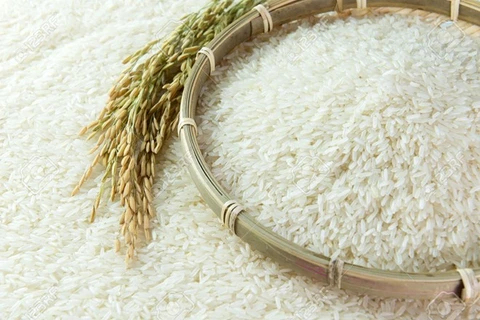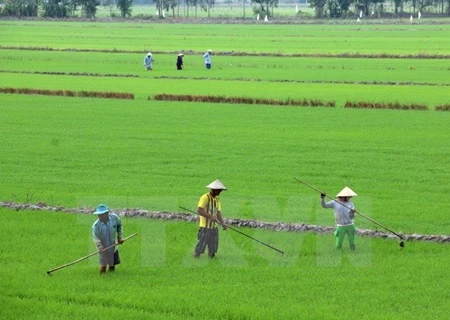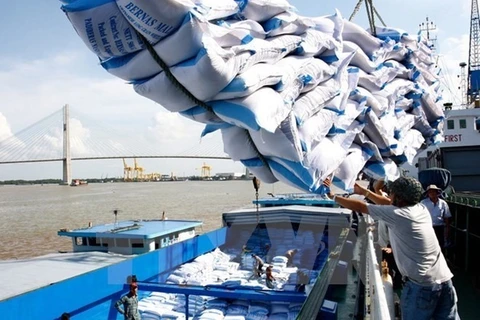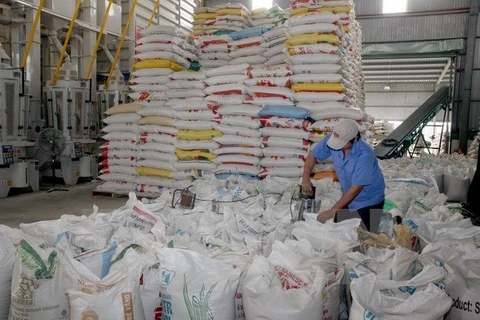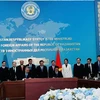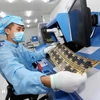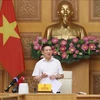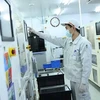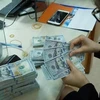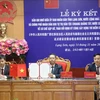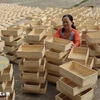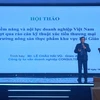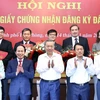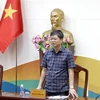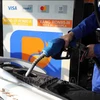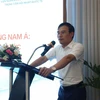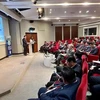HCM City (VNA) – Agriculture sector insiders put forth solutions to improve the entire rice value chain towards clean production, especially in the Mekong Delta, at a workshop in Ho Chi Minh City on March 3.
At the event, rice exporters said Vietnam is facing difficulties in rice export as the volume of shipments dropped from the record of over 8 million tonnes in 2012 to 6.6 million tonnes in 2015, and is still falling. Although the country ranks first in the rice export volume, it is facing challenges in quality and also climate change impacts, hence the need for solutions to reshuffle the entire rice production chain.
Tran Van Nhan, Director of the Vietnam Cleaner Production Centre Co. Ltd, said a Swiss-funded project on minimising industrial waste towards low-carbon production has selected rice processing to apply clean production solutions since this link has major influence on the entire chain.
Accordingly, rice producers have been instructed in how to adopt energy efficiency solutions in rice hulling and grinding and to optimise rice husk. Husk can be used to make fuel (husk briquettes and husk fuel blocks) or silica can be extracted from rice husk ash to be used as an additive in producing construction materials, he noted.
The Vietnam Southern Food Corporation (Vinafood 2) has expanded the use of energy efficiency solutions in rice production at eight subsidiaries in the Mekong Delta. They have modified equipment to use rice husk, instead of oil or coal, as fuel. They have also modernised rice processing lines to raise productivity and reduce fuel consumption.
Pham Van To, deputy head of the technique and basic construction division at Vinafood 2, said since 2013, the Song Hau Food Company – an affiliate of the corporation – has effectively applied energy efficiency solutions, saving 980,000 kWh of electricity so far.
Those solutions have brought about economic benefits while helping to reduce greenhouse gas emissions, he added.
At the workshop, experts also suggested ways to improve other steps in the production chain relating to land preparation, rice seed and pesticide use, processing and sale, thereby raising Vietnamese rice’s competitiveness in the global market.
The Swiss-funded project on minimising industrial waste towards low-carbon production has been implemented in several countries with a view to gradually reducing industrial waste and by-products and promoting the use of waste as a source of fuel.
In Vietnam, the project is being carried out in rice and coffee processing. Since 2013, the project has helped 16 rice processing factories and 10 coffee processing companies adopt clean production practice, saving over 1 million kWh of electricity (equivalent to more than 80,000 USD) and reducing 621 tonnes of CO2 emission each year.-VNA
VNA

